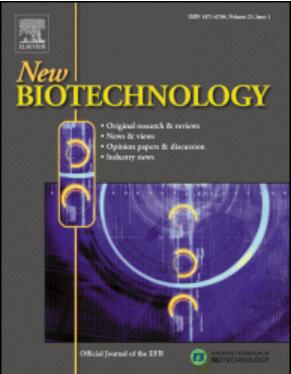Public perception of new plant breeding techniques for sustainable production of feed and food in the Czech Republic
IF 4.9
2区 生物学
Q1 BIOCHEMICAL RESEARCH METHODS
引用次数: 0
Abstract
A survey was conducted among 1676 Czech citizens in the autumn of 2024 to explore their attitudes toward different methods of crop improvement, which are based on the modification of genetic information. The study focused on three techniques: classical mutagenesis, insertion of foreign genetic material, and genome editing. The findings revealed that a significant part of the general public was unfamiliar with these technologies and their legal status. A majority of respondents mistakenly believed that currently permitted mutation breeding using radiation or chemical mutagens is illegal, while conversely assuming that techniques strictly regulated in Europe, such as transgenesis and genome editing, are allowed. Despite using different survey methods and question wording, the study pointed to a modest positive shift in public attitudes toward new genetic technologies compared to earlier surveys. For example, support for legalising genome editing rose from 22 % in 2019 to 47.6 % in 2024, and the proportion of respondents who would buy food containing genetically modified ingredients increased from 35 % to 47.4 %. Acceptance of these methods varied across demographic groups, with younger, more educated, and male respondents showing higher levels of support. While many acknowledge potential benefits such as reduced pesticide use, concerns about safety, ethics, and environmental impact remain. In general, the Czech public demonstrates cautious optimism, underscoring the importance of transparency and clear product labelling.
公众对捷克共和国饲料和食品可持续生产的新植物育种技术的看法
2024年秋,捷克对1676名公民进行了一项调查,以了解他们对基于基因信息修改的不同作物改良方法的态度。这项研究主要集中在三种技术上:经典诱变、外源遗传物质插入和基因组编辑。调查结果显示,很大一部分公众不熟悉这些技术及其法律地位。大多数受访者错误地认为,目前允许使用辐射或化学诱变剂进行突变育种是非法的,而相反地,他们认为转基因和基因组编辑等在欧洲受到严格监管的技术是允许的。尽管使用了不同的调查方法和问题措辞,该研究指出,与早期的调查相比,公众对新基因技术的态度有了适度的积极转变。例如,对基因组编辑合法化的支持率从2019年的22% %上升到2024年的47.6% %,愿意购买含有转基因成分的食品的受访者比例从35% %上升到47.4% %。不同的人口群体对这些方法的接受程度各不相同,年轻、受教育程度更高的男性受访者对这些方法的支持程度更高。虽然许多人承认减少农药使用等潜在好处,但对安全、伦理和环境影响的担忧仍然存在。总的来说,捷克公众表现出谨慎的乐观态度,强调透明度和明确产品标签的重要性。
本文章由计算机程序翻译,如有差异,请以英文原文为准。
求助全文
约1分钟内获得全文
求助全文
来源期刊

New biotechnology
生物-生化研究方法
CiteScore
11.40
自引率
1.90%
发文量
77
审稿时长
1 months
期刊介绍:
New Biotechnology is the official journal of the European Federation of Biotechnology (EFB) and is published bimonthly. It covers both the science of biotechnology and its surrounding political, business and financial milieu. The journal publishes peer-reviewed basic research papers, authoritative reviews, feature articles and opinions in all areas of biotechnology. It reflects the full diversity of current biotechnology science, particularly those advances in research and practice that open opportunities for exploitation of knowledge, commercially or otherwise, together with news, discussion and comment on broader issues of general interest and concern. The outlook is fully international.
The scope of the journal includes the research, industrial and commercial aspects of biotechnology, in areas such as: Healthcare and Pharmaceuticals; Food and Agriculture; Biofuels; Genetic Engineering and Molecular Biology; Genomics and Synthetic Biology; Nanotechnology; Environment and Biodiversity; Biocatalysis; Bioremediation; Process engineering.
 求助内容:
求助内容: 应助结果提醒方式:
应助结果提醒方式:


